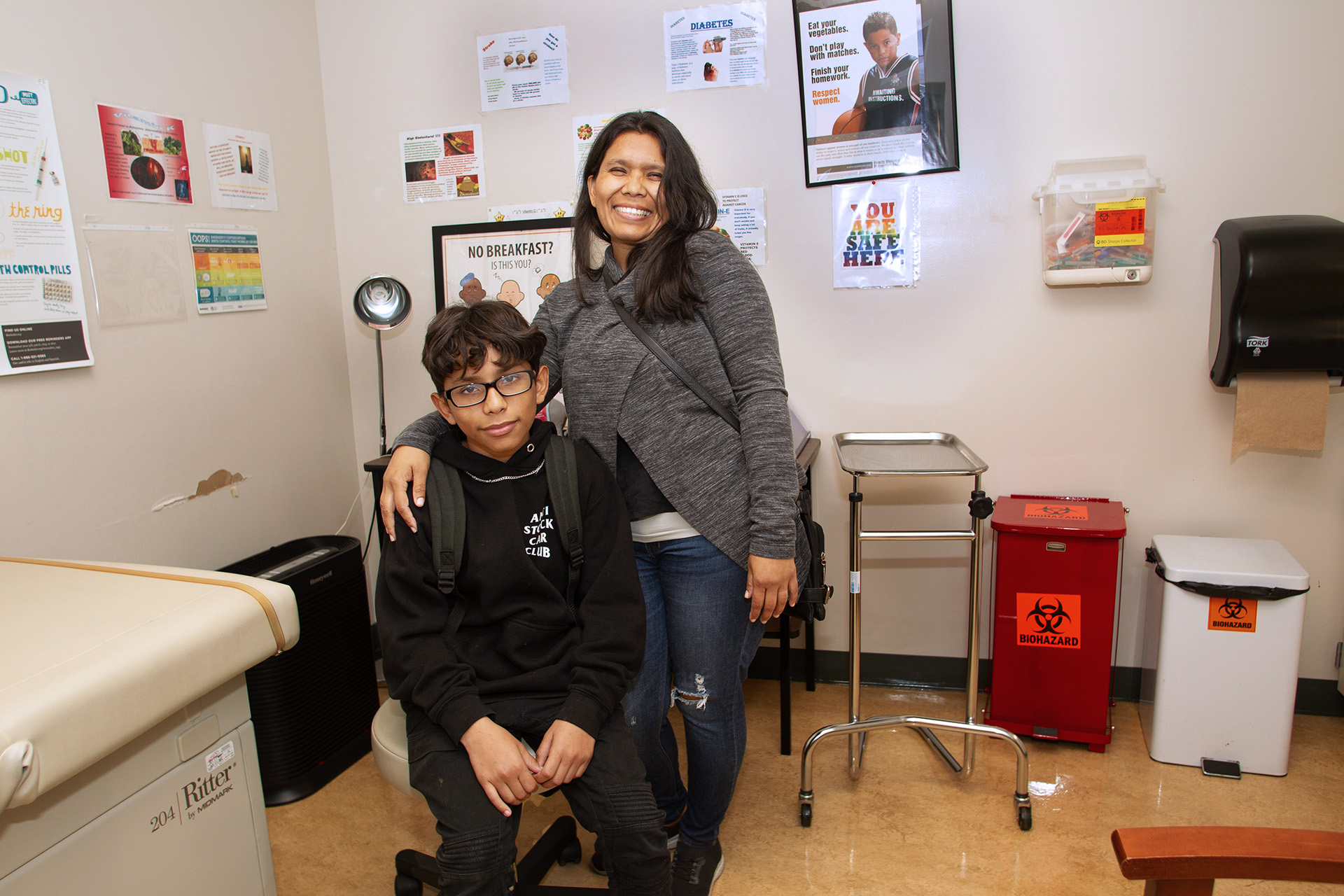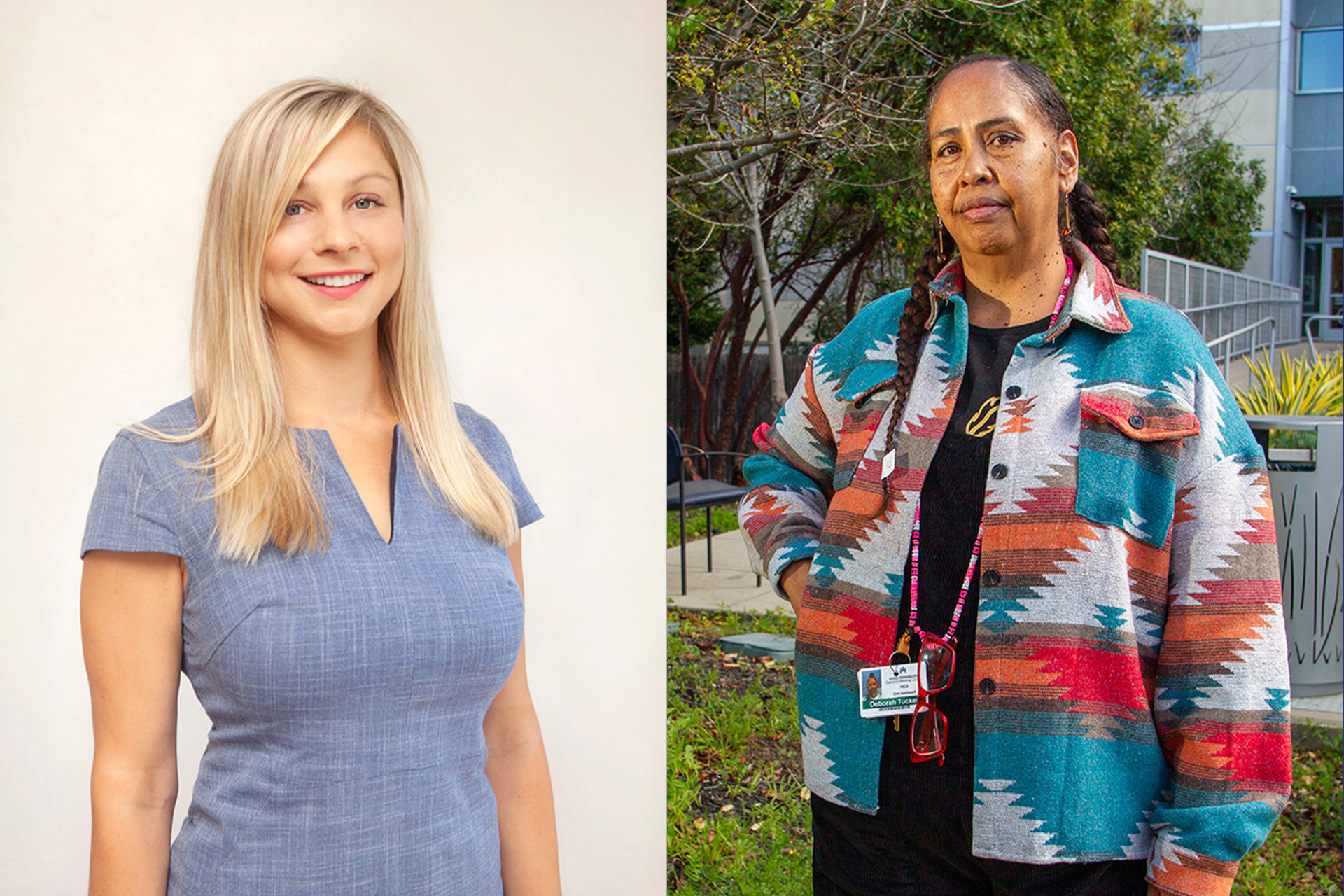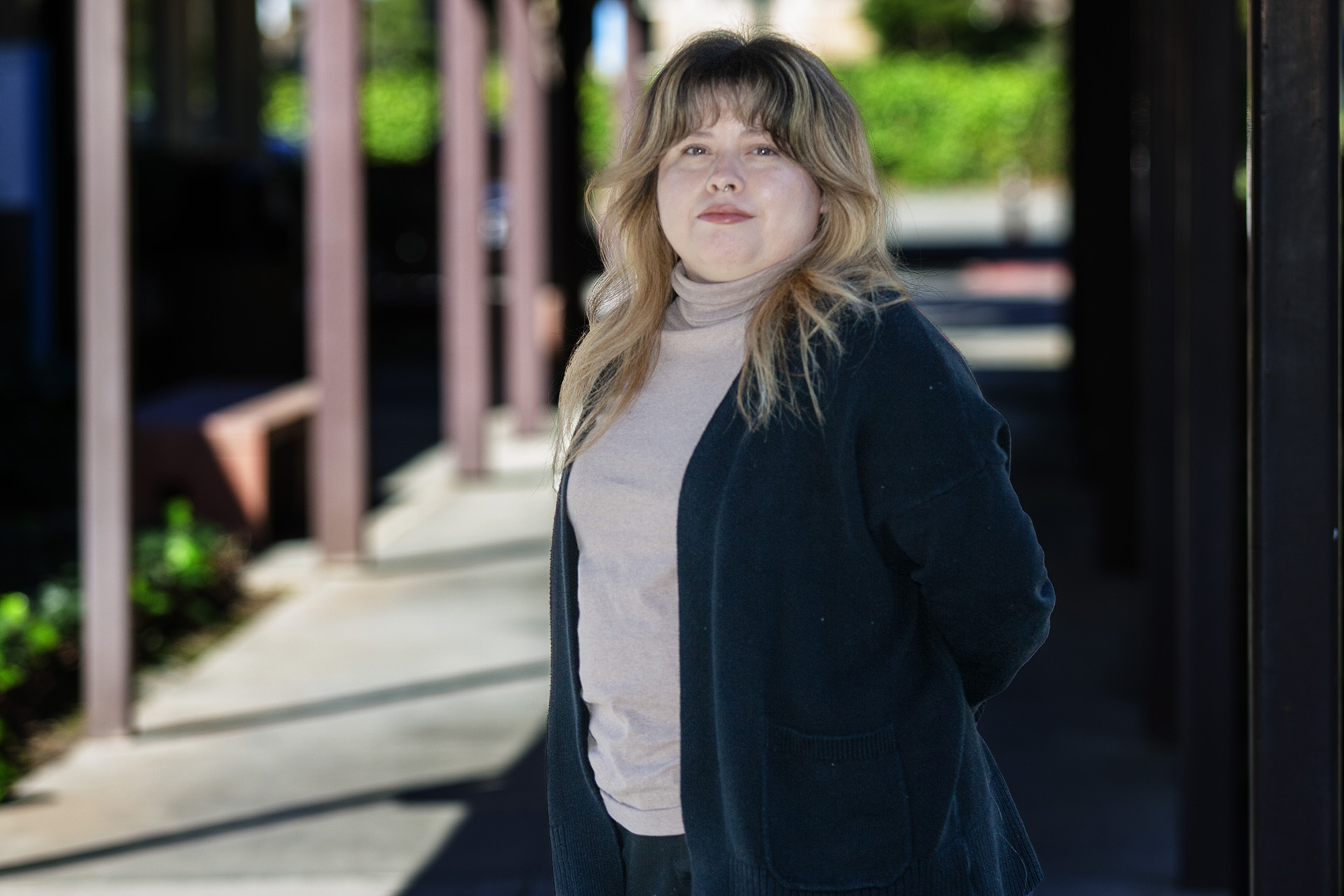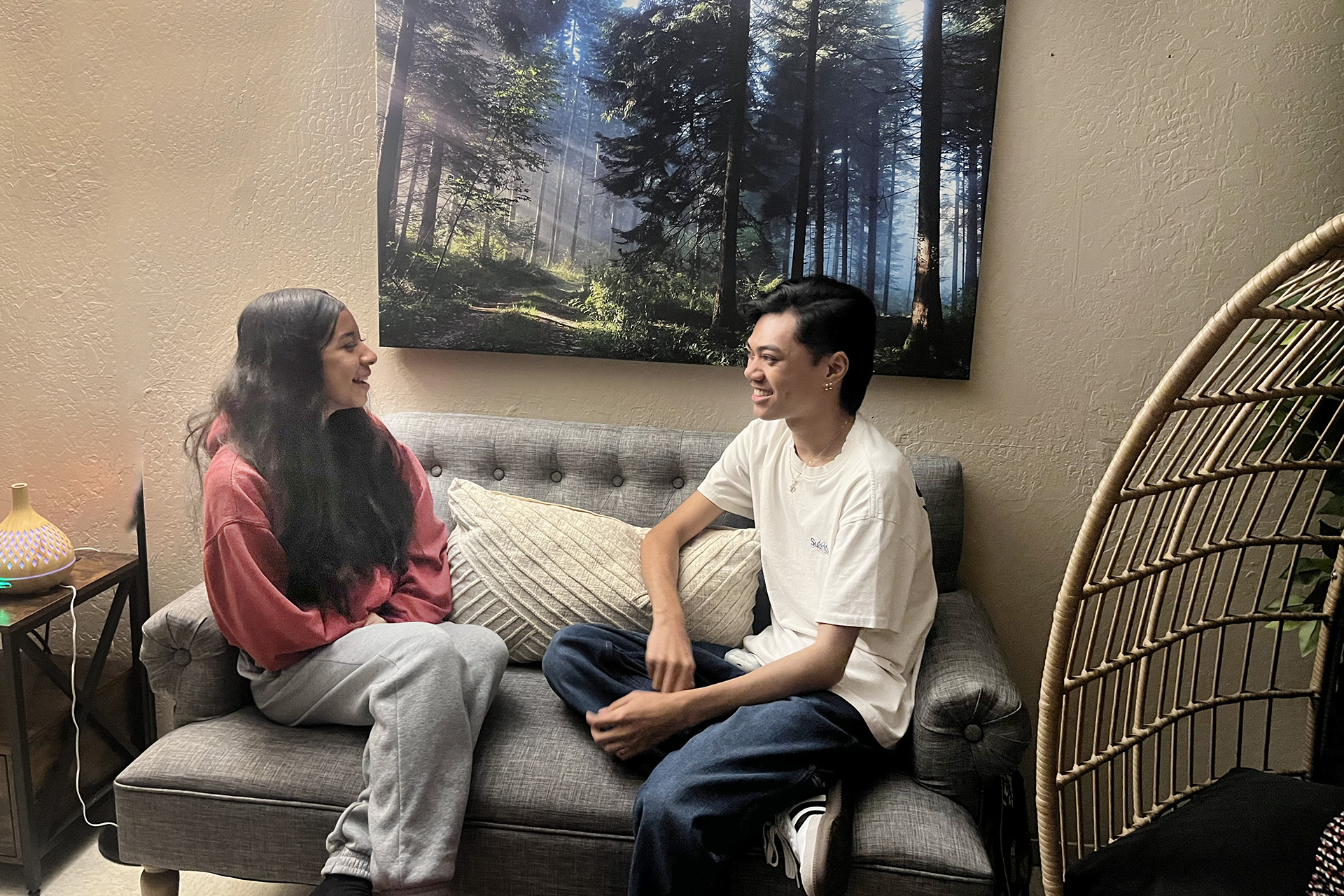Rosalva Mendez and her 12-year-old son Darryl Paz immigrated to Oakland from Honduras in August, leaving behind unmatched poverty and violence.
Mendez enrolled her son in East Oakland’s Frick United Academy of Language just in time for school to start, where, like all new students, he was immediately referred to the federally qualified Frick Health and Wellness Center.
“One of his eyes was not focusing correctly, so he had trouble seeing,” said Mendez. “They helped enroll both of us in the Medi-Cal health insurance, gave him an eye exam, and then referred him to a clinic at UC Berkeley where he got glasses. Now he can see better.”
The Frick Health and Wellness Center where Darryl Paz was treated is partially funded by a $9 million, 3-year grant from a Kaiser Permanente fund at the East Bay Community Foundation to the Oakland Unified School District. At the center, Paz also received nutrition counseling and medical and dental checkups. The health center is available to his mother and anyone in the surrounding community, with a school entrance on one side and a community entrance on the other.
“We couldn’t do it without Kaiser Permanente, so it’s a really important partnership.”
Mara Larsen-Fleming, director of Health and Wellness for the Oakland school district.
“I’m super satisfied with the services here,” said Mendez. “We came from a very poor country with lots of conflict. Now that we have access to the center and with Medi-Cal, we plan to take advantage of all the services, including mental health.”
Throughout Kaiser Permanente’s Northern California service areas, federally qualified health centers, such as those at Oakland schools, serve more than 7 million individuals. Those individuals include people who are uninsured, Medi-Cal patients, and other vulnerable populations.
“School-based health centers make it easy for students to get the care they need, and they make a huge difference in the health and lives of students and their families,” said Yvette Radford, vice president, External and Community Affairs for Kaiser Permanente in Northern California. “We’re proud to support Oakland schools and the rich array of programs they offer to help Oakland children to be healthy, succeed, and thrive.”
Kaiser Permanente has a long history of providing multi-year grants to the Oakland Unified School District, totaling $60 million since 2010.
Supporting equity, mental health
In addition to the school health centers, the $9 million grant also will support social emotional learning opportunities and mental health screening in the district’s 80 schools, expanded health education for students at all grade levels, and staff wellness opportunities. It will increase staff training and create new programs and policies for the African American Male Achievement program.
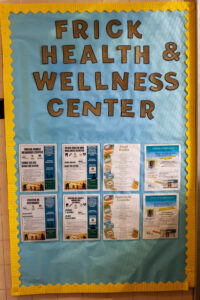 The school health centers portion of the grant will help increase the number of students and residents who use the health clinics from the current 7,500 a year to 8,500 or 9,000, said Mara Larsen-Fleming, director of Health and Wellness for the school district. It will also expand sexual and mental health services, and connect a greater number of patients to state, county, and federal social services.
The school health centers portion of the grant will help increase the number of students and residents who use the health clinics from the current 7,500 a year to 8,500 or 9,000, said Mara Larsen-Fleming, director of Health and Wellness for the school district. It will also expand sexual and mental health services, and connect a greater number of patients to state, county, and federal social services.
With the Kaiser Permanente funding over the years, Oakland’s school-based health clinics have more than doubled in number from 7 in 2009 to 16 today, Larsen-Fleming said.
“The Kaiser Permanente support we receive is core to everything we do that is connected to health and wellness at Oakland public schools,” said Larsen-Fleming. “If it wasn’t for Kaiser, this health center here at Frick Academy where Darryl was seen just wouldn’t exist. We couldn’t do it without Kaiser Permanente, so it’s a really important partnership.”
Larsen-Fleming said in addition to offering services to students and the surrounding neighborhoods, just the presence of the school-based health clinics and the access to care they offer, teach students how to ask for medical or mental health help and to advocate for their well-being. Those are skills they can use all their lives.
“I worked for 5 years at the Oakland Technical High School health center, and we would have students come back to visit from college,” she said. “They would say they were able to ask for services and navigate care because they learned how to do it in high school.”
